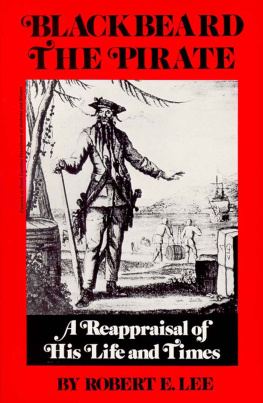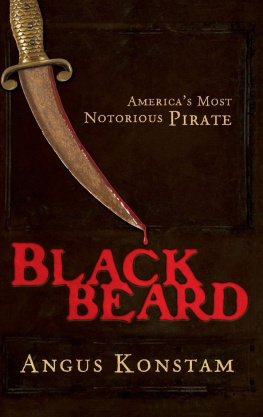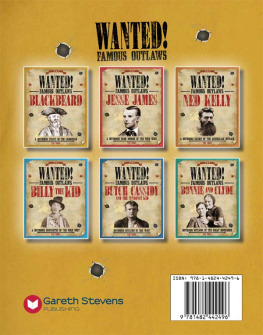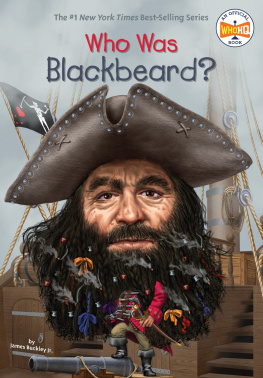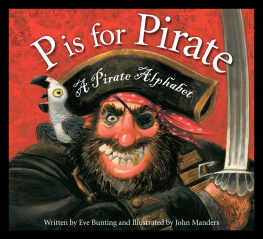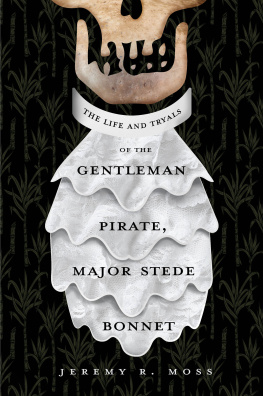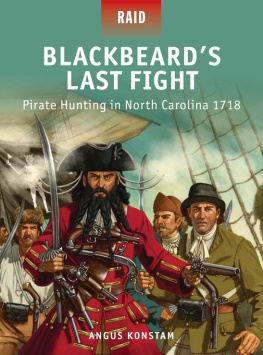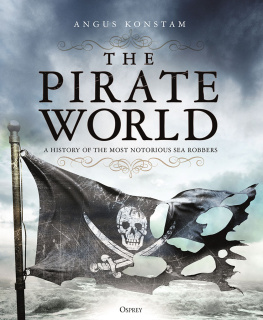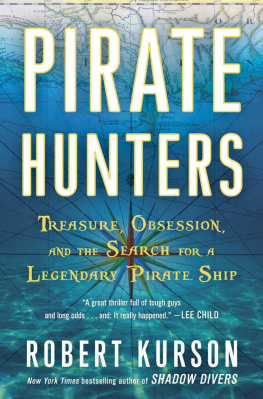Robert E. Lee - Blackbeard the Pirate
Here you can read online Robert E. Lee - Blackbeard the Pirate full text of the book (entire story) in english for free. Download pdf and epub, get meaning, cover and reviews about this ebook. year: 1974, publisher: Blair, genre: Adventure. Description of the work, (preface) as well as reviews are available. Best literature library LitArk.com created for fans of good reading and offers a wide selection of genres:
Romance novel
Science fiction
Adventure
Detective
Science
History
Home and family
Prose
Art
Politics
Computer
Non-fiction
Religion
Business
Children
Humor
Choose a favorite category and find really read worthwhile books. Enjoy immersion in the world of imagination, feel the emotions of the characters or learn something new for yourself, make an fascinating discovery.
- Book:Blackbeard the Pirate
- Author:
- Publisher:Blair
- Genre:
- Year:1974
- Rating:4 / 5
- Favourites:Add to favourites
- Your mark:
- 80
- 1
- 2
- 3
- 4
- 5
Blackbeard the Pirate: summary, description and annotation
We offer to read an annotation, description, summary or preface (depends on what the author of the book "Blackbeard the Pirate" wrote himself). If you haven't found the necessary information about the book — write in the comments, we will try to find it.
Blackbeard the Pirate — read online for free the complete book (whole text) full work
Below is the text of the book, divided by pages. System saving the place of the last page read, allows you to conveniently read the book "Blackbeard the Pirate" online for free, without having to search again every time where you left off. Put a bookmark, and you can go to the page where you finished reading at any time.
Font size:
Interval:
Bookmark:
BLACKBEARD
THE PIRATE



Sixteenth Printing, 2011
Copyright 1974 by Robert E. Lee
Library of Congress Catalog Card Number: 7475752
Printed in the United States of America
All Rights Reserved
ISBN 0895870320

T HIS IS A HISTORY of the marauding adventures of Captain Edward Teach, a picturesque colonial pirate. His incredible daredevil feats were a part of the very fabric of the times in which he lived. This history is intended for those who desire to read, against a historical background, true accounts of daring deeds of personal courage.
I have aimed at exhibiting in microcosm the character and spirit of a vanished age and at reclaiming those fragments of truth which many historians either have never discovered or have scornfully rejected, and which novelists have only in part appropriated. I have attempted to segregate fiction and legends from the historical facts. To this end, I have analyzed critically all available source materials. I have tried to scrutinize all extant records, both published and unpublished, including those of the Public Record Office of Great Britain and the state archives and historical societies in this country, as well as contemporary books of the early eighteenth century and letters and documents not available to early writers. Because many readers do not want their eyes distracted by footnotes, the source materials have been placed in the back of the book.
Edward Teach, better known as Blackbeard, is a historical figure. In telling of his epic actions, I narrate something of the laws, customs, and problems of the society in which, even if peripherally, he lived. A periods history can probably best be told through the biography of one of its leading characters, be he a hero or a villain.
It is a common error of mankind to judge the historical figures of a past age by the moral standards of the present. One cannot understand history if one takes men and events out of their moral context and attempts to interpret them by present-day values. The colonial pirates of the early 1700s and those with whom they dealt should be fairly judged in terms of their own milieu, which was not that of a Victorian drawing room.
The author wishes to acknowledge gratefully the valuable assistance rendered by the following persons, who have read the entire manuscript and made suggestions while the work was in progress: the Hon. R. Hunt Parker, late Chief Justice of the Supreme Court of North Carolina; Dr. Harold W. Tribble, President Emeritus of Wake Forest University; C. F. W. Coker, Assistant State Archivist of the North Carolina Department of Archives and History; Harold B. Gill, Jr., Research Associate at Colonial Williamsburg, Inc.; Lucien W. Emerson, a boyhood friend who, under the pseudonym Peter Field, has written more than forty books; and William C. Myers, of the Winston-Salem Bar.
ROBERT E. LEE
Winston-Salem, N.C.
February 19, 1974
Contents
BLACKBEARD
THE PIRATE

B LACKBEARD was the boldest and most notorious of the sea rovers who infested the coastal waters of the English southern colonies in the New World in the early 1700s. His activities, and those of his contemporaries, are an integral part of the colonial history of the United States. Occurring during a period frequently called the golden age of piracy, their daring exploits ushered in the beginning of the end of piracy on the high seas.
Few authentic records of Blackbeards life have come to light for any period other than the two or three years before his death. But his deeds during this brief span were meteoric, shooting across the maritime skies of two continents and causing his name to be remembered forever. Aside from appearing in hundreds of history books, his name may be found, in one form or another, in the archives of Great Britain and among the public records of the early governments of Pennsylvania, Virginia, North Carolina, and South Carolina. We know the exact details surrounding his melodramatic death but little about his life prior to 1716, except that he was born in Bristol, England,
Customarily, very little can be learned of the childhood and youth of even the best-known pirates. Pirates rarely wrote about themselves and their families. Each hoped to acquire a vast fortune and return to his former home without having tarnished If a buccaneer was killed in battle, or captured and put on trial, details are not lacking. In this respect, Edward Teachs life follows the pattern of that of most other pirate captains.
It is commonly believed, however, that at the time of his death Blackbeard was a man somewhere between thirty-five and forty years of age. This would place his birth at some time around the year 1680.
There is no absolute certainty as to Blackbeards real surname. It was the custom of pirates to adopt one or more fictitious surnames while engaging in piracy. In all the records made during the period in which he was committing his sea robberies, he is identified as either Blackbeard or Edward Teach. There are numerous spellings of the latter name, such as Thatch, Thach, Thache, Thack, Tack, Thatche, and Theach. Teach is the form most commonly encountered, and for this reason most historians have identified him by that name. Long after his death the claim was made that Blackbeards surname in Bristol was Drummond, but this assertion, unsupported by any documented proof, has not been generally accepted by historians. Very likely we shall never know what name Blackbeard bore in his native Bristol.
There are some indications that Edward Teach was born into an intelligent, respectable, well-to-do family, and, if so, he had all the more reason to abandon his real name and assume an alias. Apparently he was an educated man, for there is no doubt that he could read and write. He corresponded with merchants, and, at the time of his death, he had a letter in his possession addressed to him by the Chief Justice and Secretary of the Province of North Carolina, Tobias Knight. Furthermore, he seemed at ease not only in the company of villainous ruffians but also with governors, as if he were accustomed to moving in high circles and to the easy assumption of leadership.
It is hardly surprising that Blackbeard, being a native of Bristol, chose to follow the sea. Located in southwestern England at the confluence of the rivers Avon and Frome, and about eight miles from the Bristol Channel, Bristol was one of the best examples of English towns owing their early growth entirely to sea trade, principally with foreign countries. The Society of Merchant Adventurers was organized there in the 1400s, and by 1500 the Society regulated all the foreign trade of the city and held a lease on port dues. With the colonization of America, the Bristol merchants constructed ships that carried African slaves to the West Indies and obtained, in exchange, sugar and other items from those islands. By the time Edward Teach lived there, Bristol had grown until it was the second-largest city in England.
It was the merchants of Bristol who, shortly after the discovery of America, financed the voyages of John and Sebastian Cabot in the hope of finding a short route to Asia by sailing westward across the Atlantic. William Hawkins and his son John, from Plymouth, were among the many who made further voyages from this area of England. This was the seedtime for the heroic age that was to follow.
Next pageFont size:
Interval:
Bookmark:
Similar books «Blackbeard the Pirate»
Look at similar books to Blackbeard the Pirate. We have selected literature similar in name and meaning in the hope of providing readers with more options to find new, interesting, not yet read works.
Discussion, reviews of the book Blackbeard the Pirate and just readers' own opinions. Leave your comments, write what you think about the work, its meaning or the main characters. Specify what exactly you liked and what you didn't like, and why you think so.

